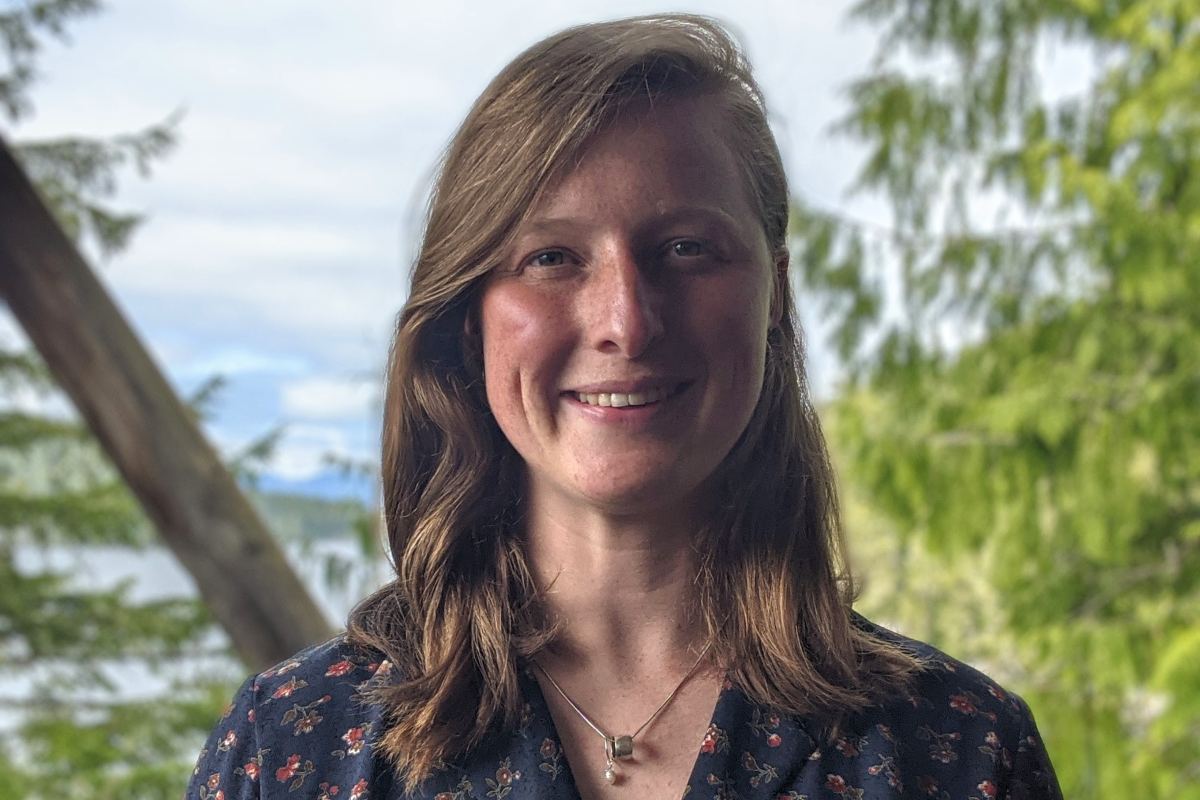
Emma Atkinson has been awarded the prestigious Vanier Scholarship recognizing her academic achievements and research on the behaviour and population dynamics of spot prawns on Canada’s west coast.
The coast of British Columbia is home to a fascinating—and delicious—species of prawns, known as spot prawns. Their mysterious behaviour has piqued the curiosity of Faculty of Science PhD student Emma Atkinson. This year, Atkinson has been awarded the prestigious Vanier Scholarship recognizing her academic achievements and research on the behaviour and population dynamics of spot prawns on Canada’s west coast.
The Vaniers are awarded each year by the Natural Sciences and Engineering Research Council of Canada (NSERC). These awards equally consider achievements in academic excellence, research, and leadership, recognizing outstanding graduate students at institutions across Canada. The awards support scholars in their studies by providing $50,000 per year for three years.
Read on to hear what this scholarship means to Atkinson and her research.
Tell me about receiving a Vanier Canada Graduate Scholarship.
As a graduate student, this recognition encourages me that I am on the right track for the focus of my research and the way I go about it. My doctoral research reflects a chance I took on ecological questions I am deeply interested in but which have received relatively sparse attention in the scientific community on the west coast of Canada. Delving into a new study system was exciting and scary—receiving a Vanier scholarship quiets the scary parts and amplifies the exciting elements.
How will this funding support your research?
This funding will support my research directly through the flexibility it offers in where and how I spend my time. As a graduate student based at the University of Alberta but studying a species and fishery on the west coast of British Columbia, the value of that flexibility can not be overstated. I am a scientist with one foot in field biology and the other in population modelling. My experience bridging these worlds has emphasized the deep value and importance of grounding my work in the ecosystem and the community to which it pertains. This involves time spent on the water and time spent with collaborators in other parts of the country. Receiving a Vanier gives me more time for those important components of my research and, hopefully, will raise the quality of my research.
My supervisor is Mark Lewis, who is cross-appointed between the Department of Biological Sciences and the Department of Mathematical and Statistical Sciences.
Tell me about the focus of your research.
My research focuses on the population and spatial dynamics of marine invertebrates in relation to their fisheries. At a glance, that sounds vague and maybe even uninteresting, but there are special details that make it, to me, exciting and also puzzling. I am interested in using mathematical and statistical models to describe and investigate the lives of hermaphroditic spot prawns (Pandalus platyceros) inhabiting the benthic waters off the west coast of North America. These spot prawns also support a unique and important trap fishery in British Columbia. As with many marine invertebrates, spot prawns begin their lives dispersing through the water before settling on the ocean floor and developing as relatively stationary male adults. After reproducing as males, spot prawns transition to females and subsequently brood and release eggs before completing their lives.
Alongside collaborators at Fisheries and Oceans Canada, the Pacific Prawn Fishermen's Association, and the Musgamagw Dzawada'enuxw Fisheries Group, I am developing models and collecting field data to address these questions and identify opportunities for a resilient fishery in the long term.
What makes the University of Alberta's Faculty of Science the ideal place to do this work?
The unique interdisciplinary environment Mark Lewis facilitates in his research group makes the University of Alberta an ideal place to do my research. The research questions I work on require a particular combination of boots-wet biology and mathematical modelling. Lewis brings students together from diverse academic backgrounds to address important questions with novel mathematical tools.
As a graduate student with a background in biology, I am learning new concepts, tools, and philosophies for approaching ecological problems. In my view, this is one of the only places in Canada that facilitates those connections so effectively.